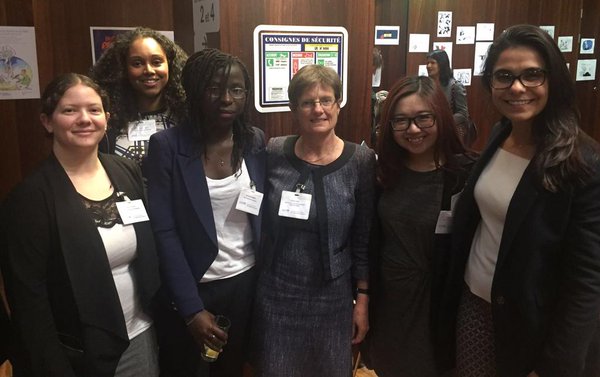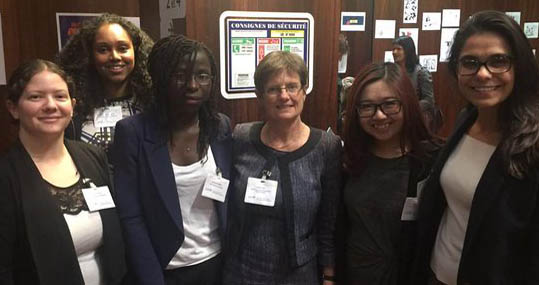I knew UNICEF's mission when I walked in the door of this Report Card launch, but had not really gathered the full understanding of what the UNICEF Innocenti Report Card 13 held until I paged through it. While chatting with some other One Young World Ambassadors who had come in from France and abroad, I found out I wasn't the only one who failed to grasp the meaning of the Report Card. General Education Director for the National Education Ministry Jean-Paul Delahaye and President of UNICEF France Jean-Marie Dru stressed the importance of the freshly published report:
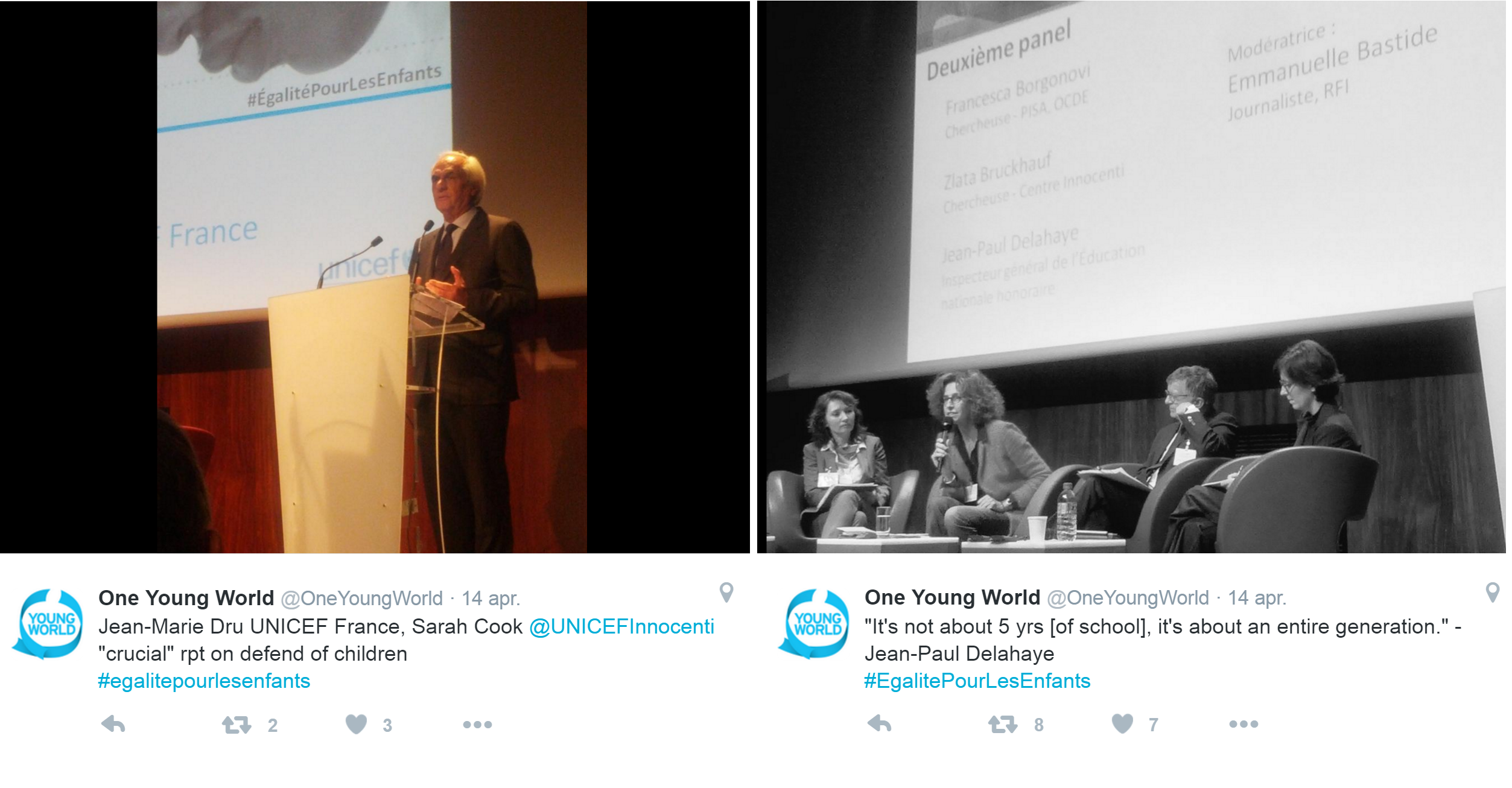
When people discuss poverty, inequality, and children in the same sentence, they are often referring to children in developing countries. This particular Report Card focused on the children in developed, or "rich", countries. It immediately struck home, as I have always lived in countries that by any definition would be considered "rich": the USA, Canada and France.
The Report Card analyses 41 countries in the EU and OECD area and delves into four main topic areas: income, education, health, and life satisfaction. As I read the report and listened to the speakers discuss how they collected their data, one thing became very clear: the surveys used were designed to listen to what the children were saying and not just what the data collectors hoped to hear. Panelists discussed how their questions evolved based on children's answers to the original queries, and how they measured and shared such non-quantifiable data.
For this conference, One Young World had asked if I could tweet out a few figures and photos during the event. I tried, but there is so much more in this report card than I could tweet in 140 characters. Several things stuck with me, and you might have been able to tell from my tweets, this mainly concerns health, education, and gender disparities.
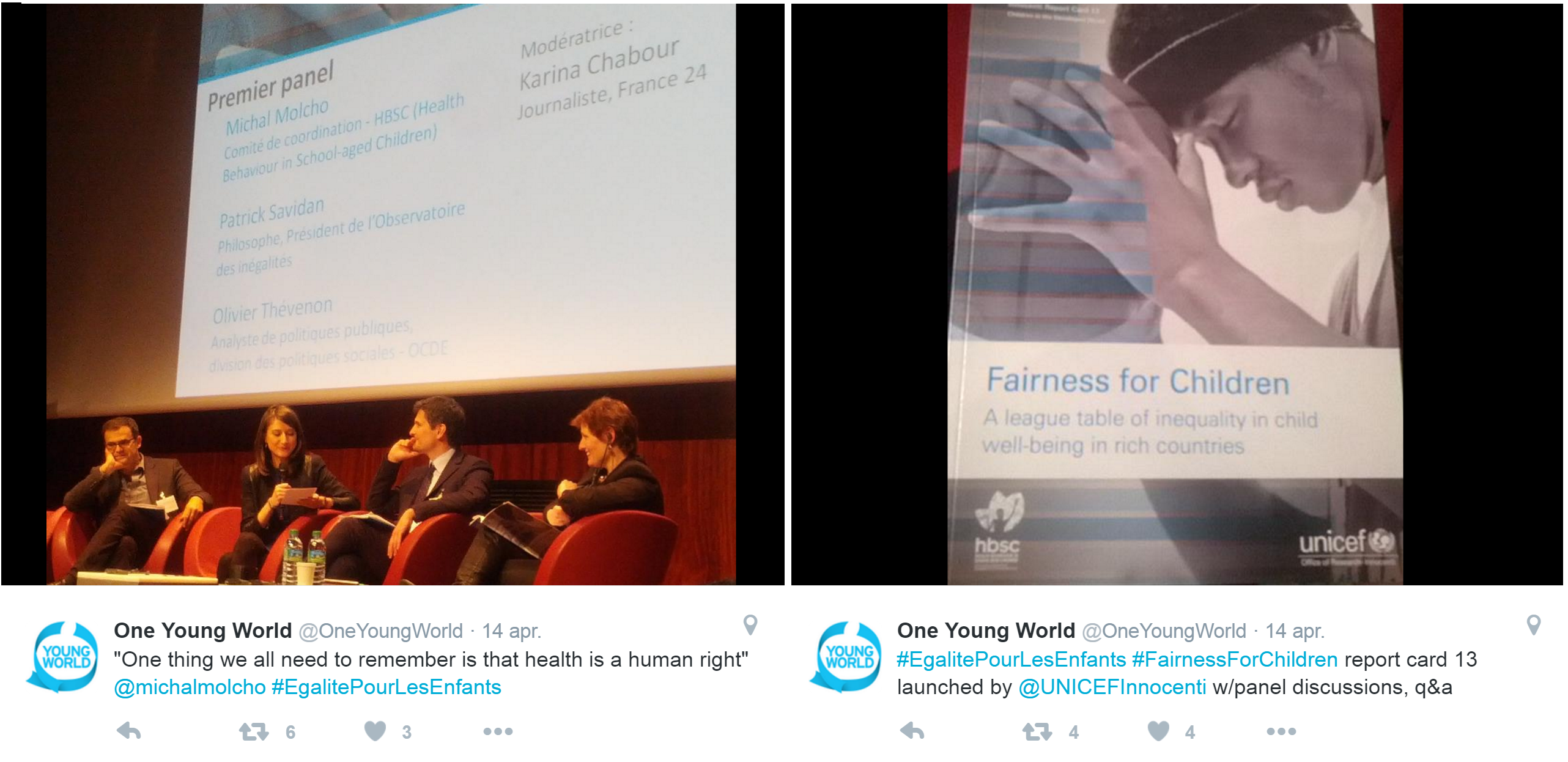
Sarah Cook, Director of the UNICEF Innocenti Research Centre, also took a moment to chat with some of the One Young World Ambassadors about how we might use the data and how we can begin to measure our own impact.
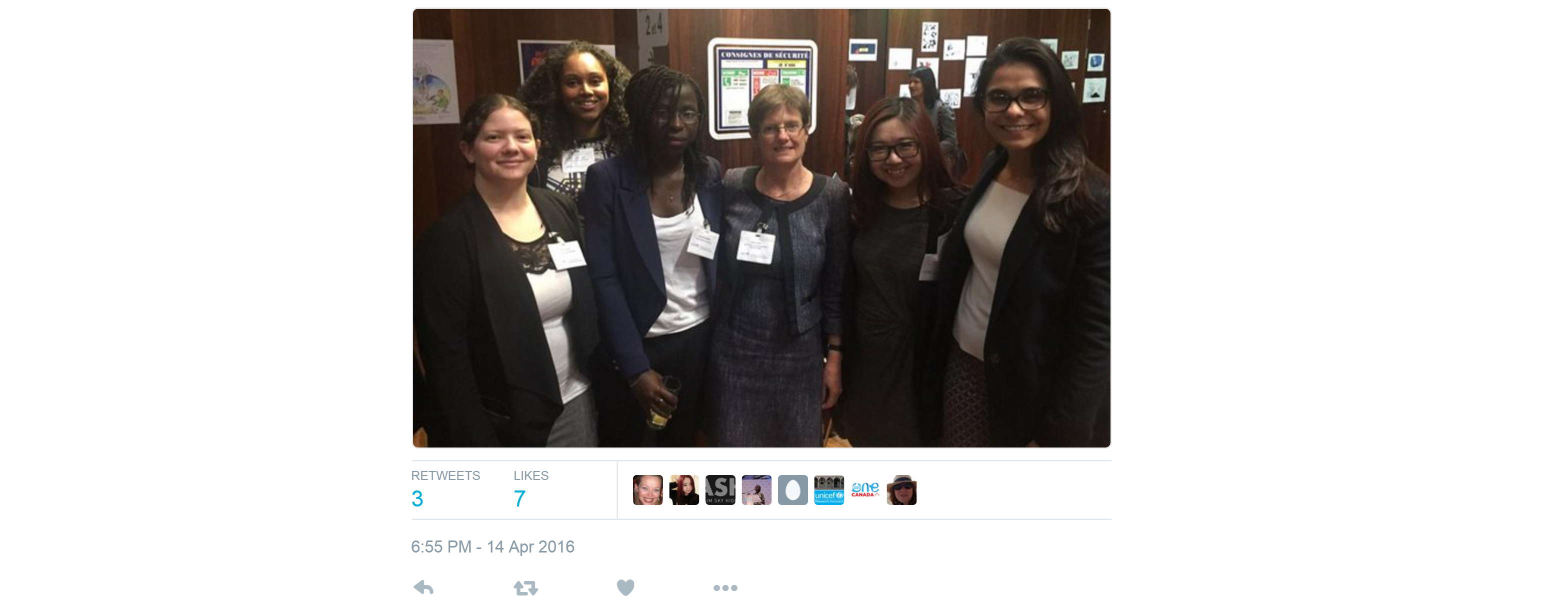
Thank you to the One Young World Ambassadors and team, UNICEF France, and the UNICEF Innocenti Research Centre for bringing us all together to discuss this report.
